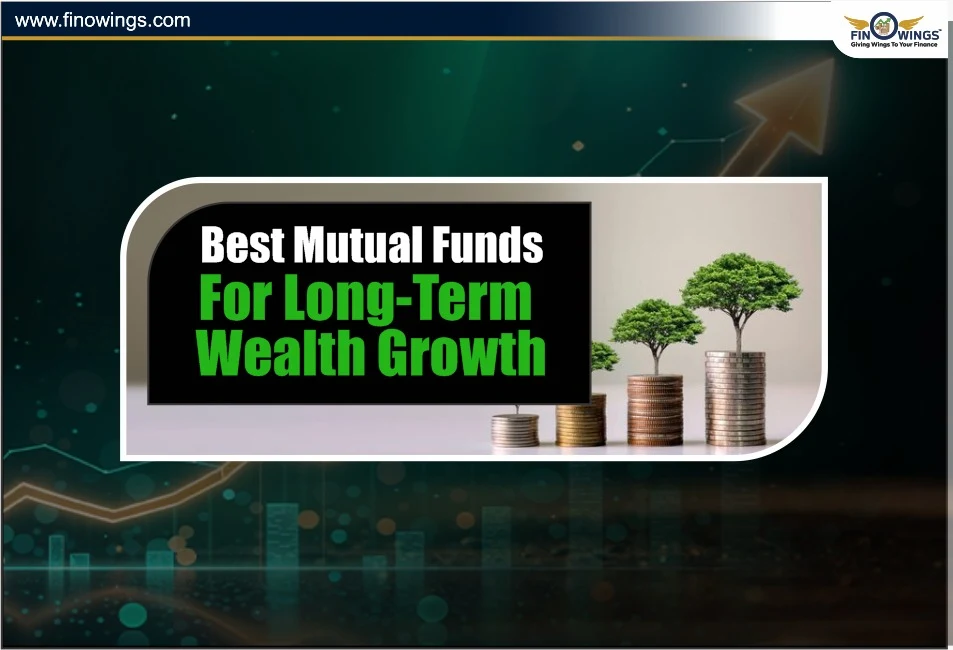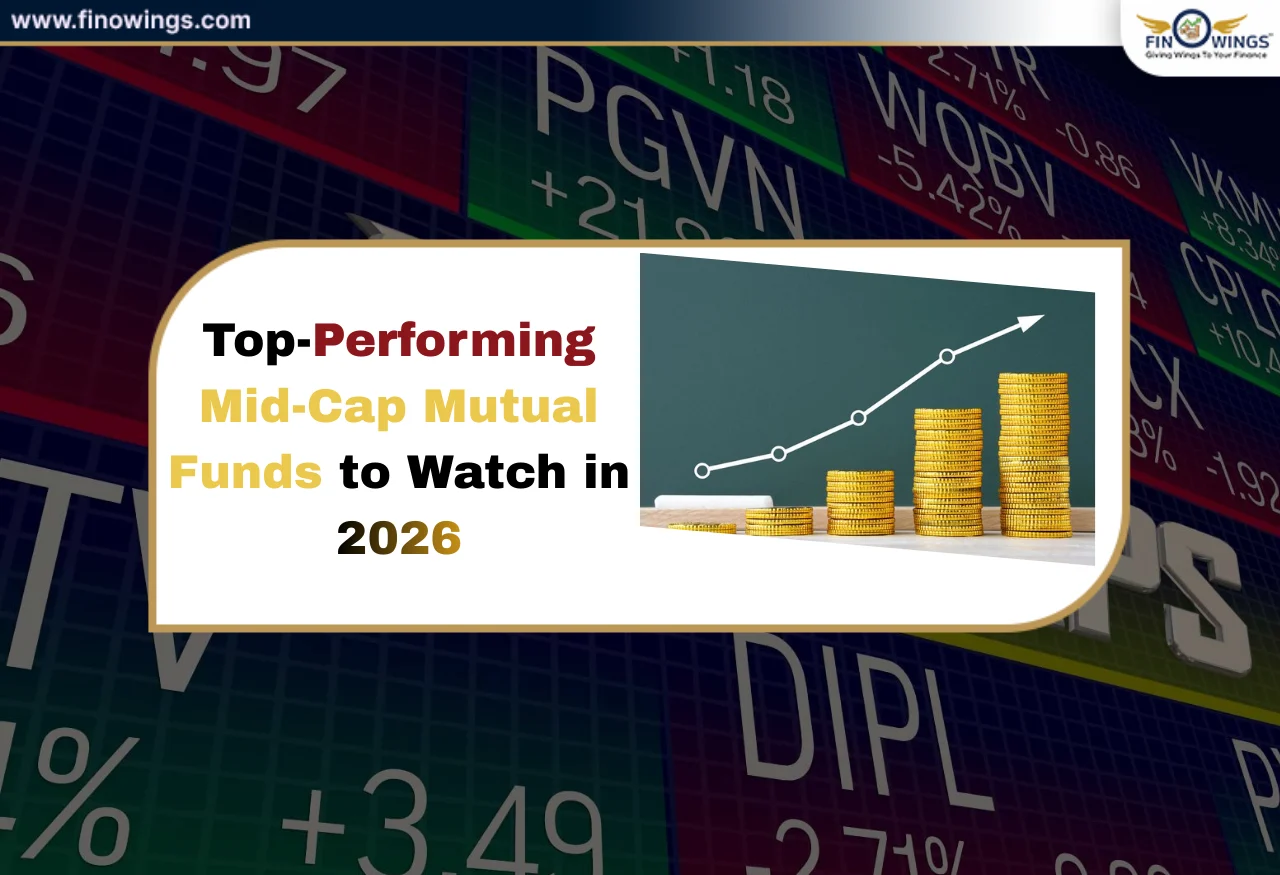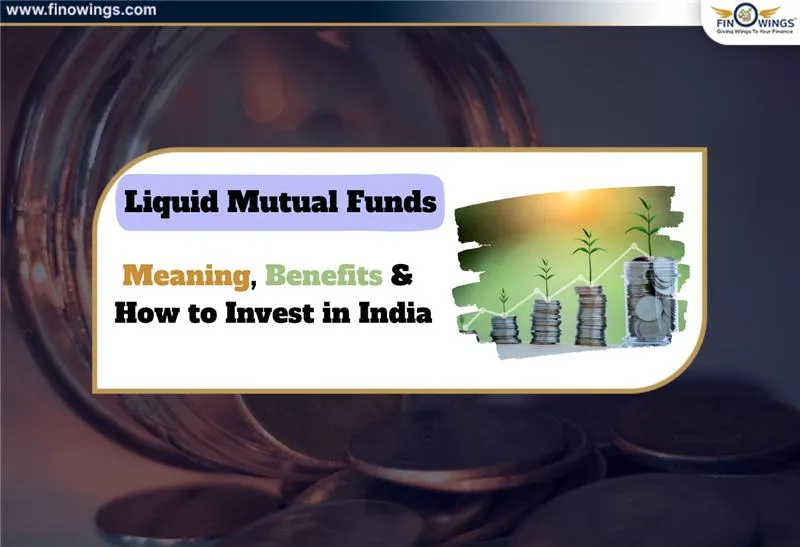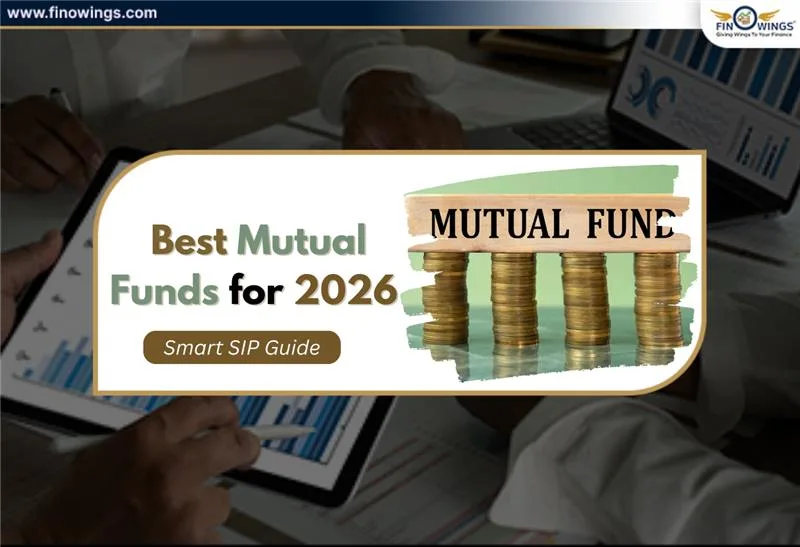Home >> Blog >> Best Mutual Funds for Long-Term Wealth Growth
Best Mutual Funds for Long-Term Wealth Growth

Table of Contents
When you seek to build wealth over a period of 10, 15, or even 20 years, choosing the correct investment can be a game changer. This is where equity mutual funds come in. This blog will show you how to pick the best mutual funds, why you should maintain a long-term investment discipline, how to determine the best mutual fund to invest in for long-term growth, and how these funds match up to investing in the best long-term stocks.
We will also discuss how the funds match investing in stocks and the criteria for “top mutual funds.”
Why Mutual Funds for the Long Term?
Broad diversification
When you invest in a mutual fund instead of choosing stocks, you get a professionally managed assortment of stocks. This diminishes the chances of losing money because of one stock badly underperforming.
Benefit of compounding
With time, even small returns become large because of the compounding effect — where your returns generate new returns and create even more returns. This is why a long-term investment horizon is important.
Investing Made Easy
For most investors, determining which mutual funds to invest in is way easier than analysing individual companies. They focus on their goal, while delegating stock selection and monitoring to the fund manager.
Gains Without Picking Stocks
With equity-oriented funds, you get to enjoy stock market growth without the hassle of hand-picking “the best long-term stocks”. They offer professional stock selection.
Choosing the Right Mutual Fund
When you assess a fund for long-term growth, consider the following:
Fund Category and Mandate - Choose equity mutual funds whose mandate aligns with your time horizon and risk appetite - large-cap funds, flexi-cap funds, large & mid-cap funds, etc.
Track Record and Consistency - Funds that perform consistently, particularly on strong "CAGR" growth, across market cycles demonstrate disciplined management. As an example, several funds have delivered strong 5-year and 7-year CAGRs. (The Economic Times)
Expense Ratio and Cost - Because returns compound, lower costs (a lower expense ratio) will significantly boost your net returns. And the less complex the fund structure, the better.
Fund Size, Liquidity, and Governance
Funds that are well-managed and have a strong reputation tend to have stable AUM, transparent reporting, and a strong reputation.
Fit With Your Goals
Matching your investment horizon, risk tolerance, and goal (retirement, children’s education, etc.) with the style of the fund is essential. A fund suitable for short-term trading may not be ideal for long-term investment.
Why Equity Funds Work Better Than Picking Stocks
-
While there is still the option to pick the best long-term stocks, the risk and effort required for it are much greater.
-
Company fundamentals have to be analysed, diversification has to be managed, and constant monitoring is required.
-
There is a steep price to pay if the investment goes wrong.
-
Mutual funds help to minimise the risk of individual stocks and allow you to concentrate on the market rather than trying to time it.
For these reasons, investing in top mutual funds is often a simpler and safer way to grow your wealth.
Best Mutual Funds in India: Themes
These are some broad fund themes that show promise for long-term growth:
Large cap / Flexi cap funds: These mutual funds are invested in large and mid-sized companies and balanced growth. A good number of funds in this category have registered 20% + CAGRs growth for 5 to 7 years.
Mid Cap / Small Cap funds: Higher growth is a possibility here, but with a higher risk as well. If your investment horizon is 10 years or more, you can allocate some funds here.
Index funds / Passive funds: They are low cost, have a simple structure and are aligned to market growth, which is ideal for those who prefer less active management.
Investing Suggested Approach
You can have the best mutual funds for building long-term growth by following these steps:
1. The more time you spend invested, the more you will benefit from compounding.
2. Investing a regular amount each month will smooth out market volatility and help reduce any timing risk.
3. It is about the time you spend in the market, not about timing the market.
4. Check each fund's performance at least annually or biannually, but don’t chase every hot fund.
5. Allocate about 60-70% in large/flexi-cap, 20-30% in mid-cap/small-cap, and the remaining in index/hybrid per your risk profile.
Example Funds and Evidence
Many fund companies and platforms have “top mutual funds” lists and recommend them for long-term investing. For example, research indicates that eight equity mutual funds have returned over 20% CAGR in both 5 and 7-year periods.
Moreover, some “best mutual fund to invest” lists include funds with direct-growth options and reasonable expense ratios.
This blog does not aim to give fund recommendations, but rather illustrates that high-quality equity mutual funds are available, and long-term investing in growth funds is very attainable if done rationally.
Risks and Things to Keep in Mind
Volatility: There will always be fluctuations in the short term. Don’t panic-sell when your portfolio takes a hit.
Fund manager & style risk: There may be a transition in fund managers or your strategy may change, which will affect outcomes.
Over-concentration: Don’t invest all your money in one fund or one category.
Expense creep: Highly active funds that are expensive may underperform relative to lower-cost passive options.
Conclusion
Investing in equity mutual funds with discipline is one of the best choices you can make in building considerable wealth over the long run. Best mutual funds for long term investment so that you can compound your wealth and stay consistent at it.
While you don’t have to identify the best long term stocks to buy with the right strategy, you may prefer professionally managed funds that invest in long-term broad market growth on your behalf. The ultimate goal is to build wealth, rather than to get rich quickly. So invest smartly, stay patient, and stay invested.
DISCLAIMER: This blog is NOT any buy or sell recommendation. No investment or trading advice is given. The content is purely for educational and information purposes only. Always consult your eligible financial advisor for investment-related decisions.
Author
Frequently Asked Questions
Equity mutual funds such as large-cap, flexi-cap, and index funds are considered ideal for long-term wealth creation. These funds invest in well-established companies and benefit from market growth over time.
Mutual funds offer diversification, professional management, and compounding benefits. Staying invested for 10–15 years allows your money to grow steadily as returns generate additional returns.
Look at the fund’s track record, expense ratio, fund manager’s consistency, and whether it aligns with your goals and risk profile. Always check long-term performance (5–7 years CAGR) rather than short-term gains.
Mid-cap and small-cap mutual funds generally offer higher potential returns over the long term, but they also come with higher risk. For balanced growth, mix large-cap, flexi-cap, and mid-cap funds.
Invest regularly through SIPs (Systematic Investment Plans), stay invested for 10+ years, and review your portfolio yearly. Avoid chasing short-term trends and focus on consistent compounding for wealth creation.





.webp)












